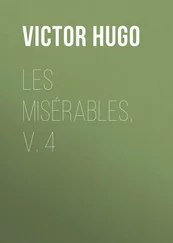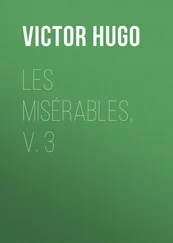Lascelles Wraxall - Les Misérables, v. 2
Здесь есть возможность читать онлайн «Lascelles Wraxall - Les Misérables, v. 2» — ознакомительный отрывок электронной книги совершенно бесплатно, а после прочтения отрывка купить полную версию. В некоторых случаях можно слушать аудио, скачать через торрент в формате fb2 и присутствует краткое содержание. Жанр: literature_19, foreign_antique, foreign_prose, на английском языке. Описание произведения, (предисловие) а так же отзывы посетителей доступны на портале библиотеки ЛибКат.
- Название:Les Misérables, v. 2
- Автор:
- Жанр:
- Год:неизвестен
- ISBN:нет данных
- Рейтинг книги:5 / 5. Голосов: 1
-
Избранное:Добавить в избранное
- Отзывы:
-
Ваша оценка:
- 100
- 1
- 2
- 3
- 4
- 5
Les Misérables, v. 2: краткое содержание, описание и аннотация
Предлагаем к чтению аннотацию, описание, краткое содержание или предисловие (зависит от того, что написал сам автор книги «Les Misérables, v. 2»). Если вы не нашли необходимую информацию о книге — напишите в комментариях, мы постараемся отыскать её.
Les Misérables, v. 2 — читать онлайн ознакомительный отрывок
Ниже представлен текст книги, разбитый по страницам. Система сохранения места последней прочитанной страницы, позволяет с удобством читать онлайн бесплатно книгу «Les Misérables, v. 2», без необходимости каждый раз заново искать на чём Вы остановились. Поставьте закладку, и сможете в любой момент перейти на страницу, на которой закончили чтение.
Интервал:
Закладка:
One half light, one half shade, Napoleon felt himself protected in good, and tolerated in evil. There was, or he fancied there was, for him a connivance, we might say almost a complicity, on the part of events, equivalent to the ancient invulnerability; and yet, when a man has behind him the Beresina, Leipsic, and Fontainebleau, it seems as if he might distrust Waterloo. A mysterious frown becomes visible on the face of heaven. At the moment when Wellington retrograded, Napoleon quivered. He suddenly saw the plateau of Mont St. Jean deserted, and the front of the English army disappear. It was rallying, but was screened from sight. The Emperor half raised himself in his stirrups, and the flash of victory passed into his eyes. If Wellington were driven back into the forest of Soignies, and destroyed, it would be the definitive overthrow of England by France: it would be Cressy, Poictiers, Malplaquet, and Ramilies avenged; the man of Marengo would erase Agincourt. The Emperor, while meditating on this tremendous stroke, turned his telescope to all parts of the battle-field. His Guards, standing at ease behind him, gazed at him with a sort of religious awe. He was reflecting, he examined the slopes, noted the inclines, scrutinized the clumps of trees, the patches of barley, and the paths; he seemed to be counting every tuft of gorse. He looked with some fixity at the English barricades, – two large masses of felled trees, the one on the Genappe road defended by two guns, the only ones of all the English artillery which commanded the battlefield, and the one on the Nivelles road, behind which flashed the Dutch bayonets of Chassé's brigade. He remarked near this barricade the old chapel of St. Nicholas, which is at the corner of the cross-road leading to Braine l'Alleud. He bent down and spoke in a low voice to the guide Lacoste. The guide shook his head with a probably perfidious negative.
The Emperor drew himself up and reflected; Wellington was retiring, and all that was needed now was to complete this retreat by an overthrow. Napoleon hurriedly turned and sent off a messenger at full speed to Paris to announce that the battle was gained. Napoleon was one of those geniuses from whom thunder issues, and he had just found his thunder-stroke; he gave Milhaud's cuirassiers orders to carry the plateau of Mont St. Jean.
CHAPTER IX
A SURPRISE
They were three thousand five hundred in number, and formed a front a quarter of a league in length; they were gigantic men mounted on colossal horses. They formed twenty-six squadrons, and had behind them, as a support, Lefebvre Desnouette's division, composed of one hundred and six picked gendarmes, the chasseurs of the Guard, eleven hundred and ninety-seven sabres, and the lancers of the Guard, eight hundred and eighty lances. They wore a helmet without a plume, and a cuirass of wrought steel, and were armed with pistols and a straight sabre. In the morning the whole army had admired them when they came up, at nine o'clock, with bugles sounding, while all the bands played, "Veillons au salut de l'Empire," in close column with one battery on their flank, the others in their centre, and deployed in two ranks, and took their place in that powerful second line, so skilfully formed by Napoleon, which having at its extreme left Kellermann's cuirassiers, and on its extreme right Milhaud's cuirassiers, seemed to be endowed with two wings of steel.
The aide-de-camp Bernard carried to them the Emperor's order: Ney drew his sabre and placed himself at their head, and the mighty squadrons started. Then a formidable spectacle was seen: the whole of this cavalry, with raised sabres, with standards flying, and formed in columns of division, descended, with one movement and as one man, with the precision of a bronze battering-ram opening a breach, the hill of the Belle Alliance. They entered the formidable valley in which so many men had already fallen, disappeared in the smoke, and then, emerging from the gloom, reappeared on the other side of the valley, still in a close compact column, mounting at a trot, under a tremendous canister fire, the frightful muddy incline of the plateau of Mont St. Jean. They ascended it, stern, threatening, and imperturbable; between the breaks in the artillery and musketry fire the colossal tramp could be heard. As they formed two divisions, they were in two columns: Wathier's division was on the right, Delord's on the left. At a distance it appeared as if two immense steel snakes were crawling toward the crest of the plateau; they traversed the battle-field like a flash.
Nothing like it had been seen since the capture of the great redoubt of the Moskova by the heavy cavalry: Murat was missing, but Ney was there. It seemed as if this mass had become a monster, and had but one soul; each squadron undulated, and swelled like the rings of a polype. This could be seen through a vast smoke which was rent asunder at intervals; it was a pell-mell of helmets, shouts, and sabres, a stormy bounding of horses among cannon, and a disciplined and terrible array; while above it all flashed the cuirasses like the scales of the hydra. Such narratives seemed to belong to another age; something like this vision was doubtless traceable in the old Orphean epics describing the men-horses, the ancient hippanthropists, those Titans with human faces and equestrian chest whose gallop escaladed Olympus, – horrible, invulnerable, sublime; gods and brutes. It was a curious numerical coincidence that twenty-six battalions were preparing to receive the charge of these twenty-six squadrons. Behind the crest of the plateau, in the shadow of the masked battery, thirteen English squares, each of two battalions and formed two deep, with seven men in the first lines and six in the second, were waiting, calm, dumb, and motionless, with their muskets, for what was coming. They did not see the cuirassiers, and the cuirassiers did not see them: they merely heard this tide of men ascending. They heard the swelling sound of three thousand horses, the alternating and symmetrical sound of the hoof, the clang of the cuirasses, the clash of the sabres, and a species of great and formidable breathing. There was a long and terrible silence, and then a long file of raised arms, brandishing sabres, and helmets, and bugles, and standards, and three thousand heads with great moustaches, shouting, "Long live the Emperor!" appeared above the crest. The whole of this cavalry debouched on the plateau, and it was like the commencement of an earthquake.
All at once, terrible to relate, the head of the column of cuirassiers facing the English left reared with a fearful clamor. On reaching the culminating point of the crest, furious and eager to make their exterminating dash on the English squares and guns, the cuirassiers noticed between them and the English a trench, a grave. It was the sunken road of Ohain. It was a frightful moment, – the ravine was there, unexpected, yawning, almost precipitous, beneath the horses' feet, and with a depth of twelve feet between its two sides. The second rank thrust the first into the abyss; the horses reared, fell back, slipped with all four feet in the air, crushing and throwing their riders. There was no means of escaping; the entire column was one huge projectile. The force acquired to crush the English, crushed the French, and the inexorable ravine would not yield till it was filled up. Men and horses rolled into it pell-mell, crushing each other, and making one large charnel-house of the gulf, and when this grave was full of living men the rest passed over them. Nearly one-third of Dubois' brigade rolled into this abyss. This commenced the loss of the battle. A local tradition, which evidently exaggerates, says that two thousand horses and fifteen hundred men were buried in the sunken road of Ohain. These figures probably comprise the other corpses cast into the ravine on the day after the battle. It was this brigade of Dubois, so fatally tried, which an hour before, charging unsupported, had captured the flag of the Luxembourg battalion. Napoleon, before ordering this charge, had surveyed the ground, but had been unable to see this hollow way, which did not form even a ripple on the crest of the plateau. Warned, however, by the little white chapel which marks its juncture with the Nivelles road, he had asked Lacoste a question, probably as to whether there was any obstacle. The guide answered No, and we might almost say that Napoleon's catastrophe was brought about by a peasant's shake of the head.
Читать дальшеИнтервал:
Закладка:
Похожие книги на «Les Misérables, v. 2»
Представляем Вашему вниманию похожие книги на «Les Misérables, v. 2» списком для выбора. Мы отобрали схожую по названию и смыслу литературу в надежде предоставить читателям больше вариантов отыскать новые, интересные, ещё непрочитанные произведения.
Обсуждение, отзывы о книге «Les Misérables, v. 2» и просто собственные мнения читателей. Оставьте ваши комментарии, напишите, что Вы думаете о произведении, его смысле или главных героях. Укажите что конкретно понравилось, а что нет, и почему Вы так считаете.












